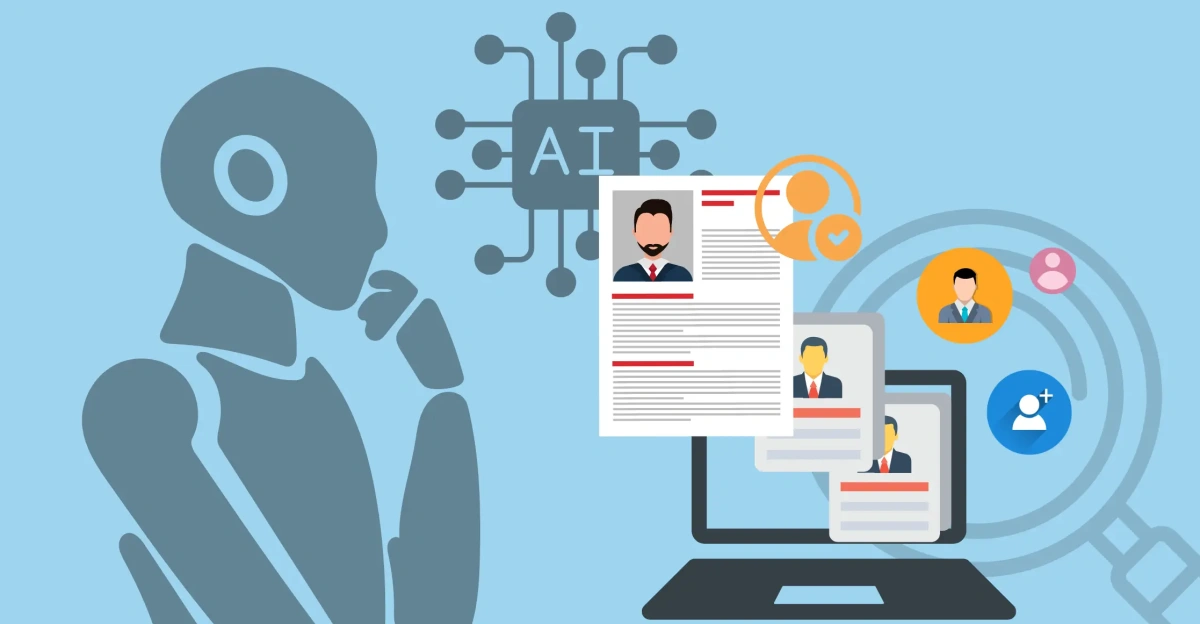
The statement “Nobody will hire you” is a harsh reality about the present labor market and worker skill sets, delivered by a Walmart executive to its 2.1 million employees. This statement highlights an increasingly prevalent reality: in a highly competitive environment, many workers, especially in low-wage retail industries, have highly specialized but not widely marketable skills.
Employers in all sectors are demanding applicants who can show measurable outcomes and flexibility beyond entry-level experience as they grow risk-averse. The Walmart executive’s direct warning is meant to force an open discussion about this labor market dynamic, not to discourage but to encourage self-evaluation and immediate retraining to end the cycle of job insecurity.
Retail Employment’s Historical Context

For a long time, retail jobs at big-box stores like Walmart have been perceived as steady but low-skilled jobs with little opportunity for advancement. Hourly retail workers have historically been viewed more as temporary workers than as long-term career professionals. Repetition and fundamental customer service were the main focuses of the industrial model; these were transferable but easily replaceable skills.
A systemic problem stemming from this historical undervaluation of retail skills is reflected in the Walmart executive’s comment. This dilemma is made worse by automation and e-commerce, which are changing the retail industry into one that is more reliant on technology and calls for problem-solving skills and digital literacy that go well beyond traditional roles.
The Increase in Risk-Averse Employment

Today’s employers are under tremendous pressure to avoid hiring errors that could cost them money. Research indicates that poor hires cost businesses not only money but also productivity and employee morale.
Low-skilled workers are disadvantaged by the expectation that candidates “show, not tell” their abilities, particularly if their experience is limited to specific, non-technical roles. The difficulty faced by the Walmart executive is a reflection of the larger hiring trend, which favors highly skilled, adaptable employees who can quickly change roles in a market that is changing quickly.
Effects on the Mind and Employee Accountability

The executive’s direct statement also serves as a psychological counterbalance to the “entitlement” mentality that permeates some industries, where tenure or employer loyalty are mistakenly taken for granted as guarantees of ongoing employment. Presenting employees with the harsh reality places the onus of responsibility on them to either upskill or risk losing their job.
This strategy can cause a significant shift in motivation, despite its controversy. Direct feedback, even if it is uncomfortable, can encourage proactive career behaviors like skill diversification and retraining, according to psychological research. However, it runs the risk of being criticized for not showing compassion for systemic obstacles like economic inequality or educational access.
Accepting Cruel Honesty

A counterargument contends that brutal honesty is required for societal recalibration, despite the fact that many critics characterize the executive’s statement as elitist or demotivating. Sugarcoating the facts about labor runs the risk of encouraging complacency. Uncompromising communication and a clear-eyed assessment can be liberating, releasing employees from delusions that keep them in a state of underpreparedness.
This candor is essential to survival in industries that are experiencing rapid technological disruption. Truth is sometimes painful but life-saving, much like medical diagnoses. This viewpoint encourages companies and employees to openly face difficult realities in order to spur systemic upskilling programs and personal responsibility, opening the door to a workforce ecosystem that is more resilient.
Marketability Matrix for Skills

A “Skills Marketability Matrix,” with a horizontal axis measuring skill specialization and a vertical axis measuring cross-industry relevance, can help explain why hiring challenges affect Walmart employees. Many retail workers are in a precarious niche because they rank highly in their areas of expertise (customer service, inventory), but they have low cross-industry applicability.
The executive’s caution emphasizes the need to shift toward specialized yet widely marketable skills (e.g., digital literacy, project management). Companies look for applicants in the top-right quadrant of the matrix, where broad applicability and high specialization coexist. Reaching this quadrant necessitates strategic upskilling that prioritizes flexibility over task proficiency.
Severe Case Study: Automation and Employment

Decline in Retail. Think about the retail industry in areas where self-checkout systems powered by AI and automation have taken hold. Such technology is used by a number of Walmart locations and other retailers to boost productivity and lower labor costs. In severe situations, this results in major layoffs or changes in roles that call for technical maintenance expertise instead of standard cashier duties. Employees who don’t quickly adapt or retrain risk losing their jobs, which verifies the executive’s claim in real time.
These instances are not speculative; instead, they point to future developments in which routine human labor will be replaced by automation, necessitating an immediate workforce transformation. In the larger job market, those who are unable or unwilling to change have few options.
Second-Order Impacts on the Economy and Workforce

A number of second-order societal effects are hinted at in the executive’s stark message. First, economic inequality is exacerbated as a growing gap between workers who invest in ongoing learning and those who do not. Second, businesses might automate or outsource low-skilled jobs more frequently, which would change the dynamics of the labor market.
Third, as displaced workers look for unemployment benefits and retraining, social safety nets may face pressure. The need for public-private partnerships in workforce development may increase as a result of this dynamic. As a result, Walmart executives’ candor serves as a warning about the changes in the labor market and the financial difficulties brought on by mass skill obsolescence.
Possible Remedies and Strategic Modifications

The harsh reality necessitates the use of diverse approaches. Governments, employers, and employees must work together to develop scalable, easily accessible upskilling programs that prioritize problem-solving, emotional intelligence, and digital skills. Employer-sponsored training, collaborations with community colleges, and portable certification programs are some tactics.
Employees need to adopt a mindset of lifelong learning and look for skill sets that are valued in changing markets. Walmart itself could lead the way in reskilling initiatives to increase the marketability of its employees outside of the retail industry. A route from the executive’s bleak outlook toward sustainable employment futures is provided by proactive skill development in conjunction with transparency in labor market realities.
Market Dynamics and Psychosocial Factors

The executive’s message serves as a wake-up call against reliance on a single employer or role identity by delving deeper into psychosocial dynamics. It calls into question the cultural myth of lifetime employment guarantees and encourages employees to build career resilience by utilizing a variety of networks and skills.
From a market perspective, companies that use algorithmic candidate screening and performance analytics to offset hiring risks strengthen the demand for verifiable evidence of abilities and results. Strategic, self-directed career management is encouraged by this changing environment; those who are ill-prepared or unwilling risk long-term unemployment. Navigating and surviving the future labor market requires an understanding of these complex dynamics.
The Psychological Aspects of Employee Attitude

The warning from the Walmart executive brings to light significant psychological dynamics in the workplace. Negative attitudes, chronic complaining, and resistance to change are well-documented barriers to career advancement. Employers associate ongoing negativity with poor teamwork, decreased resilience, and decreased productivity, according to psychological research.
This leads to a vicious cycle whereby negative employees are passed over for promotions or outside opportunities due to perceived emotional risk rather than just a lack of skills. By encouraging employees to shift their cognitive mindsets toward solution-oriented thinking, the executive’s direct message serves as a psychological trigger that enhances emotional intelligence, interpersonal relationships, and eventually, marketability.
Automation and AI’s Effect on Demand for Workers

Jobs in retail and services are rapidly changing due to automation and artificial intelligence (AI). AI-driven logistics, inventory drones, and self-checkout systems lessen the need for regular jobs that Walmart employees have historically completed. To handle hybrid human-technology roles, employers are increasingly looking for employees with digital literacy, flexibility, and problem-solving abilities.
Thus, labor displacement trends, where technology eliminates low-margin jobs or converts them into skilled technician roles, amplify the executive’s dire hiring outlook. The urgency of the warning is further reinforced by the fact that workers who are not ready for this shift are more likely to experience unemployment or stagnation.
Bias in Hiring and Economic Inequality

The statement subtly reveals the dynamics of structural hiring biases and economic inequality. Employees from underprivileged backgrounds are less appealing to risk-averse employers because they frequently have educational deficiencies or restricted access to resources for upskilling. Inadvertently, the executive’s message highlights actual socioeconomic obstacles that restrict workforce mobility.
Many Walmart employees and other mass workers may continue to be stuck in low-skilled positions with dwindling external job prospects if systemic investment in equitable education and training is not made. This would exacerbate already existing economic disparities.
Corporate Culture’s Impact on Employee Attitude

Employee attitudes and expectations are shaped by Walmart’s corporate culture, which is renowned for its effectiveness and performance focus. The executive’s statement reflects the organization’s desire for proactive engagement and self-accountability in addition to employee responsibility. A company culture that accepts negativity runs the risk of lowering morale and output.
Walmart’s leadership makes it abundantly evident that mindset has a direct impact on career longevity and external employability by publicly announcing this “red flag.” Employees are under pressure from this cultural feedback loop to match their actions with company objectives or risk being excluded.
Programs for Strategic Workforce Development and Reskilling

Walmart has made more investments in reskilling and upskilling programs, including collaborations with community colleges and online learning platforms, in response to labor market shifts and difficulties. Strategic programs aimed at enhancing employees’ digital, managerial, and problem-solving skills coexist with the executive’s harsh rhetoric.
These expenditures indicate a two-pronged approach: hold employees responsible for their attitudes while offering resources to improve their skills. This model serves as an example of how businesses can strike a balance between support and accountability in order to shield employees from the risks of automation and changes in the market.
Additional Corporate Trends and Warnings

Similar cautions about employee attitudes and adaptability as crucial hiring criteria have been made by other top companies. Employing practices at companies like Amazon and Target prioritize a “growth mindset” and ongoing development.
According to comparative data, there is increasing corporate agreement that employability encompasses behavioral attributes like positivity and creativity in addition to skills. Thus, Walmart’s executive statement is a part of a larger paradigm shift that emphasizes both technical and psychological competencies in workforce evaluation. This pattern indicates that holistic employee profiles will be given more weight in future hiring standards.
Sociological Views on Employee Morale and Job Security

Sociologically speaking, the executive’s statement capitalizes on the decline of conventional job security myths, which were formerly defined by lifetime employment or sluggish tenure-based advancement.
The social contracts between employers and employees have shifted toward mutual performance and flexibility in the face of volatile modern labor markets. In competitive settings, employee morale is increasingly dependent on flexibility and self-promotion. The executive’s blunt prognosis is representative of significant labor market changes as a result of this cultural shift, which forces fundamental reevaluations of career narratives and social identities associated with work.
Future Employment Landscape: Cultural Fit and Predictive Analytics

Decisions about hiring and retention are increasingly being influenced by emerging technologies like predictive analytics and AI-driven hiring algorithms. These systems take into account qualifications as well as measures of attitude and cultural fit. This ecosystem shift, where “red flags” like negativity lower algorithmic hiring scores, is consistent with the Walmart executive’s message. To score highly, candidates need to develop both technical and intangible skills, such as problem-solving and teamwork orientation. The labor market polarization between flexible workers and those who find it difficult to meet changing expectations is probably exacerbated by this multifaceted evaluation framework.
Implications for Policy and Suggestions

The Walmart executive’s direct message demands policy discussions about social protection and workforce development. Governments, educational institutions, and the private sector must work together to establish easily accessible channels for career counseling, mental health assistance, and skill development.
To supplement traditional skills programs, policies should encourage training in emotional resilience and lifelong learning. Workers who are flagged as “unemployable” run the risk of sustaining cycles of unemployment and economic marginalization in the absence of proactive public policy responses. These problems worsen social instability and lower economic competitiveness.
Conclusion

In addition to being provocative rhetoric, the Walmart executive’s statement that “Nobody will hire you” is a wake-up call that reflects broader changes in labor markets, employer expectations, and worker responsibilities. This message, which has its roots in the historical undervaluation of retail skills and is being accelerated by technology and risk-averse hiring, presents employees with the sobering fact that tenure security is no longer an option.
Adopting brutal honesty spurs immediate adaptation and reskilling, which are necessary for workforce resilience. This tough love can turn a challenge into a chance for empowerment and long-term employment if society and individuals react with thoughtful education, compassion for systemic obstacles, and strong lifelong learning frameworks.